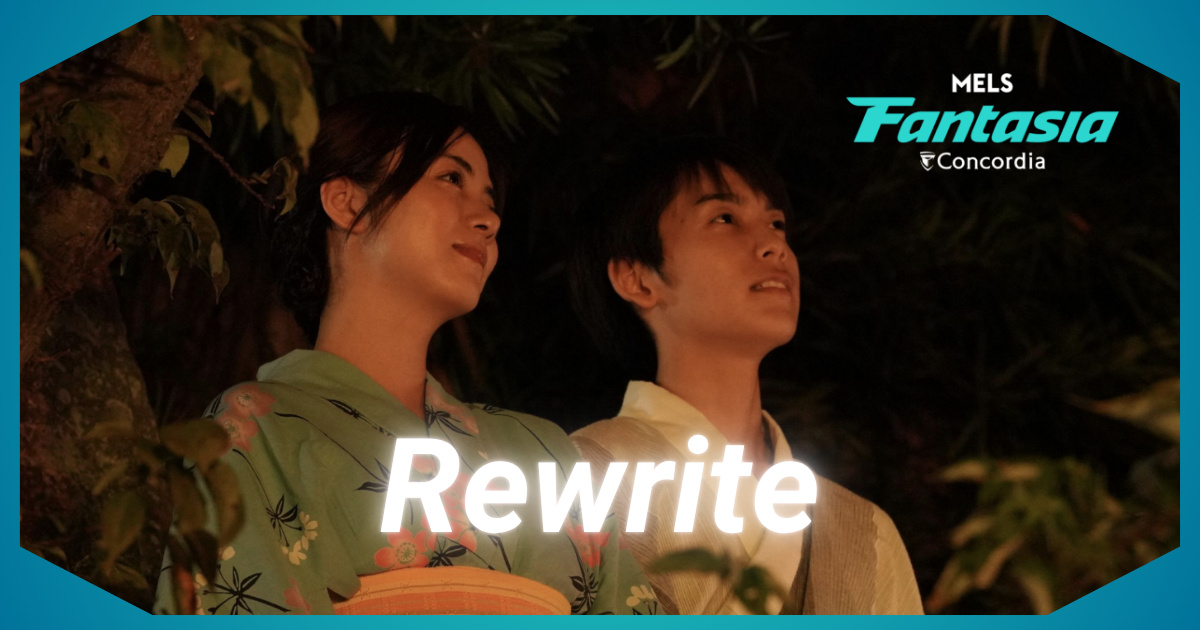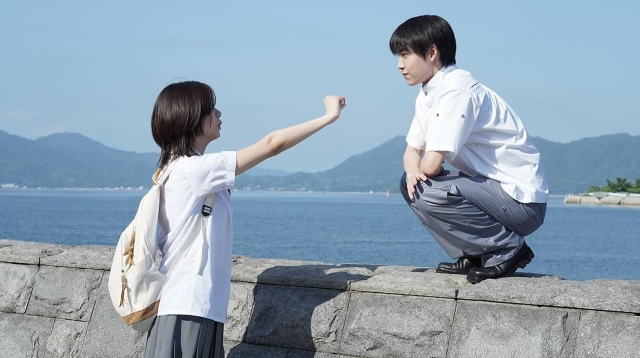Fantasia Film Festival 2025: ‘Rewrite’ Offers Complex and Sincere Sci-Fi

Each year, covering Fantasia Film Festival reminds me of how dull America’s writing has become. Rewrite exemplifies this idea, not just because it’s penned by one of Japan’s best sci-fi screenwriters. The film blends an earnest high school drama with a complex time travel story. It’s especially appealing because its source material is inspired by the brilliant anime, The Girl Who Leapt Through Time. With the addition of the talented screenwriter Makoto Ueda, known for River and Beyond the Infinite Two Minutes, watching Rewrite fully meets expectations.
Rewrite and the challenges of understanding youth
The story revolves around Miyuki Isheda (Elaiza Ikeda), a shy, reserved girl facing the challenges of adolescence. Her high school life is typical until she meets Yasuhiko Sonoda (Kei Adachi), a boy of her age who suddenly appears out of nowhere. Yasuhiko explains his sudden presence by claiming he’s from 300 years in the future.
During his visit, they share a special connection and grow fond of each other. At the end of his stay, he reveals that a book from the future brought him to Miyuki’s timeline and that she must be the one who wrote it. He encourages Miyuki to tell the story and create a perfect loop.
The story then unexpectedly moves beyond high school into Miyuki’s adult life, where she attempts to publish a novel and live peacefully with a new romantic partner. The novel that she calls “Girl Leaps Time,” becomes Miyuki’s main focus until her publisher provides unexpected feedback. Her story resembles others’ submissions, and the same story had been optioned years earlier. The mystery then becomes: why? Why are multiple authors sharing the same experience with a time-traveling boy?
As Miyuki realizes there is more than one story, Ueda’s screenplay begins shifting between past and present, similar to how Yellowjackets unfolds narratively. The past influences the future, and the future influences the past, so to speak. The audience is taken through a new set of events from Miyuki’s high school days, revealing more about herself and her classmates.

Thematically, Rewrite is about grappling with one’s adolescence to reshape the future. It’s a relatable prospect because many of us have childhood events that have shaped our experiences as adults. In this respect, one can understand the reasons behind the name Rewrite. It’s a wonderful sci-fi story about rewriting one’s life by facing the things we did not fully understand as children.
Special effects and vision of Japanese director Daigo Matsui
While Rewrite isn’t directed by the same person as River or Beyond the Infinite Two Minutes, filmmaker Daigo Matsui employs the same minimal approach. Most of the time travel effects are created with in-camera visuals and simple editing, like frames that make characters vanish or appear instantly.
Practicality is one of Japan’s greatest strengths, as it stretches limited budgets while enhancing the spectacle through character interactions. For example, because Yasuhiko keeps returning to the same period, there are multiple versions of him interacting with students. An American studio might rely on costly visual effects to show his different personas, but Rewrite uses seamless cuts around the campus to achieve the same effect.
Rewrite is a sincere and complex sci-fi story
Rewrite features a wide cast of characters within its time travel story, balancing each of them expertly. Ai Hashimoto as Tomoe nearly steals the entire film, playing a young girl living with an abusive father in a tough neighborhood. Her character is tragic, but Hashimoto’s performance is deeply layered, especially in the second half. One of the best qualities an actor can have is the ability to convey emotion without words, and she communicates intensely through her eyes.
The film also offers nuanced storytelling through various schoolyard characters, packing in a lot of personal stories. The richness of the details could have filled a Netflix series, but somehow, they manage to fit it all into two hours.
The ending feels a bit convoluted, but its sincerity hits the mark. For this reason, Rewrite is another success for Ueda as a sci-fi screenwriter. It might not reach the greatness of River, but it’s one of his most heartfelt works. Plus, it could inspire viewers to revisit the anime masterpiece, The Girl Who Leapt Through Time.
Also check out: Fantasia Film Festival 2025: Terrestrial Movie Review


